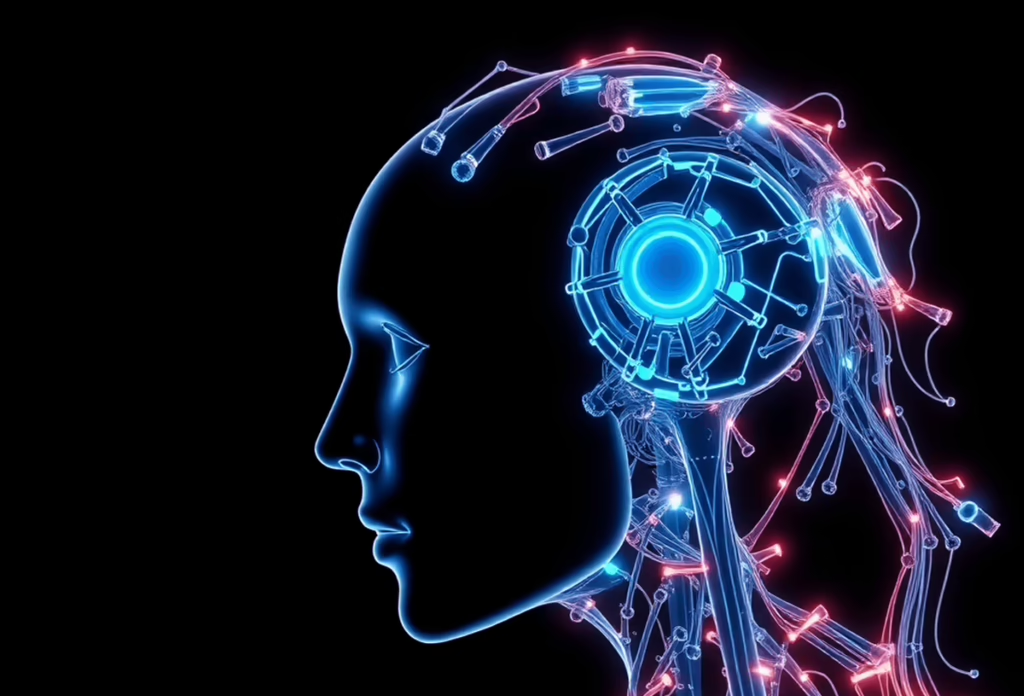As AI technology continues to grow, it’s hard not to wonder about its impact on digital marketing. With advancements in data analysis and automation, many speculate whether AI could take over essential marketing roles. The reality is a bit more nuanced: while AI will undoubtedly transform the marketing landscape, it’s unlikely to fully replace the creativity and human touch that drive effective campaigns.
In this post, we’ll explore how AI is reshaping the field, automating routine tasks, and enhancing customer insights. We’ll also discuss the crucial role human creativity plays in crafting engaging, meaningful connections with audiences. By understanding these dynamics, marketers can adapt and thrive in this evolving environment. Get ready to uncover the future of marketing, where technology and creativity converge to redefine success.
The Growing Impact of AI in Digital Marketing
AI technology is changing the way digital marketing operates, reshaping how businesses connect with their customers. By harnessing data and automating processes, AI is helping marketers become more efficient and effective. The key areas where AI is making a difference include predictive analytics and the automation of routine marketing tasks.
Predictive Analytics and Customer Insights
Predictive analytics is like having a crystal ball for customer behavior. By analyzing vast amounts of data, AI can identify patterns and trends that help predict how customers will act. This capability allows marketers to tailor their strategies based on in-depth insights into audience preferences.
For instance, AI systems can analyze web traffic, social media interactions, and past purchase history to forecast which products a customer might want next. Imagine being able to offer a customer a personalized recommendation at the moment they are ready to buy. This kind of insight boosts customer satisfaction and can lead to higher conversion rates. According to Forbes, companies using predictive analytics are seeing improved targeting and optimized ad spending.
With AI, businesses can also segment their audience more accurately. By understanding customer demographics, buying habits, and interests, marketers can deliver messages that resonate more with their target audience. This specificity not only strengthens customer relationships but also optimizes overall marketing effectiveness.
Automation of Routine Marketing Tasks
One of the significant advantages of AI in digital marketing is its ability to automate mundane tasks. Tasks such as data entry, customer interactions, and even content generation can be handled by AI tools, allowing marketers to focus on strategy and creativity.
For example, AI can analyze data in real time, providing insights that help businesses react to market trends swiftly. Chatbots powered by AI can manage customer inquiries 24/7, enhancing the customer experience while freeing up human resources for complex tasks. AI not only streamlines these operations but also ensures that interactions are consistent and brand-aligned.
Automating activities like email campaigns can also lead to improved engagement. AI can determine the best time to send messages based on user interaction patterns and can even personalize the content for each recipient. This level of customization encourages better response rates, making marketing efforts more effective.
The growing reliance on AI for these functions signifies a shift — marketers can no longer afford to ignore the technological advancements that allow them to operate more efficiently. For more information on how AI changes marketing strategies, check out this insightful guide.

Photo by Sanket Mishra
AI’s Capabilities vs. Human Creativity
The discussion around AI’s role in marketing often raises questions about its capabilities compared to human creativity. While AI excels at data-driven decision-making, human touch remains crucial in areas reliant on emotion, artistry, and cultural understanding. Let’s unpack these perspectives.
Strengths of AI in Data-Driven Decision Making
AI has transformed digital marketing through its impressive ability to analyze data. Think of AI as a lightning-fast student who can read thousands of books in an hour, distilling complex information into actionable insights. Here are some of the strengths AI brings to data-driven decision-making:
- Real-Time Analytics: AI can process vast amounts of data across various platforms in real time. This capacity allows marketers to identify trends and adjust strategies almost instantaneously. For example, AI can examine social media interactions, website traffic, and customer feedback to help companies adapt their campaigns effectively.
- Predictive Modeling: By using advanced algorithms, AI can predict future customer behaviors. It analyzes historical data to forecast which products or services customers are more likely to buy next. Companies that harness predictive analytics can significantly enhance their targeting and achieve better marketing ROI. Organizations adopting such strategies typically see increased engagement and conversion rates, as highlighted in this insightful article from AI in Marketing.
- Segmentation Precision: With the ability to classify audiences into specific groups based on their behaviors and preferences, AI elevates marketing efforts. By understanding the nuances of audience segments, marketers can create tailored campaigns that resonate more deeply, ultimately leading to stronger connections with customers.
The Irreplaceable Human Touch
While AI is incredibly proficient in analyzing data, it lacks the creativity and emotional intelligence inherent in humans. Here’s where the irreplaceable human touch plays a vital role in marketing:
- Emotional Connection: Brands thrive on the emotional bonds they create with their customers. Effective marketing often invokes feelings, stories, and experiences that resonate on a personal level. Humans can engage in storytelling that taps into cultural contexts, which makes campaigns memorable and relatable. For more insights into the essential role of human creativity, check out this article.
- Creative Ideation: Creativity goes beyond merely generating ideas; it involves original thinking and innovations that can disrupt markets and challenge norms. While AI can assist in generating content or suggesting ideas based on data patterns, it cannot replicate the intuitive spark that drives real creativity. This unique human capacity allows marketers to think outside the box and create strategies that are not just data-driven but also magnetic and engaging.
- Cultural Sensitivity: Understanding cultural nuances is critical in marketing. Human marketers bring their personal experiences and insights, enabling them to craft messages that resonate across diverse demographics. The ability to understand and convey empathy plays a crucial role in forming authentic connections with audiences, something AI still struggles to achieve.
In summary, while AI can optimize strategies and enhance efficiency through data analysis, the artistry of human creativity and emotional intelligence remains a cornerstone of meaningful marketing. Balancing these elements is essential for success in a rapidly evolving digital landscape. As we analyze how AI will influence marketing, it’s clear that the future lies in a partnership between data-driven technologies and the human spirit.

Photo by Canva Studio

